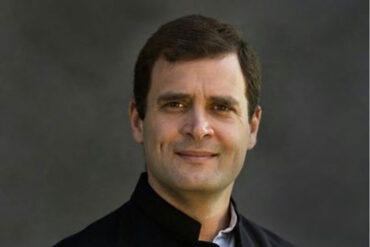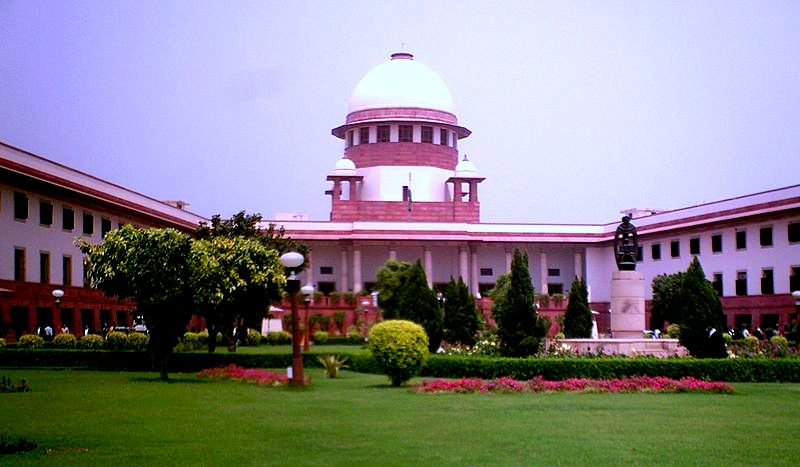At a time when the Modi government is heading towards creating a Uniform Civil Code (UCC) in the country, the suggestions, comments, and protests about the same have created a big hype and the real aspects that need to be addressed are getting neglected. The government’s version of the UCC needs to be debated publicly. The Law Commission has also released a questionnaire seeking public opinion on the same.
However, before indulging in a debate or arriving at a conclusion, people must understand that the UCC does not demand everyone in the country to follow the Hindu Law, but to look at reform of family laws across all religions, mainly with gender justice in mind. Gender discriminatory practices among all religions should be curbed and family law must be codified. This is what implementing the UCC actually means.
The Law Commission of India invited public opinion on the UCC, as per its notification dated October 7, 2016. In this backdrop, a debate on the same was organised by Citizens for Constitutional Governance, a society based in Kochi that is working for reforms in the field of law and policy making. The debate was held at the Theosophical Society Hall, Ernakulam, on November 12, 2016.
Some of the major points that need to highlighted when talking about the UCC and are being debated by experts were covered at the conference. The Kochi Post contacted Advocate Manu Sebastian, who is also a part of the society and was one of the persons in-charge of the debate, in order to know the expert opinion and practicality of implementing the UCC. We have included the major portions of the report in this article.
Explaining more about the implementation of the UCC, Adv. Manu Sebastian says, “Ideally speaking, in a modern democratic secular State, laws should apply equally to all citizens. The religious faith of a person should not be determinative of the law that would apply to him. However, in a diverse and pluralistic society like India, the application of the above said ideal concept can prove to be deleterious. Religion plays a crucial role in influencing the social psyche in our country. If laws are made unmindful of such social realities, they would become unworkable and counterproductive.”
Civil Code refers to a set of laws that govern the civil rights and liabilities of persons. Civil rights and liabilities are those that arise out of inter-personal interactions in the form of contract, business, transfer of property, service agreements, family and marital relationships, etc. The law relating to contract, business, sale and transfer of property, monetary transactions, etc. are uniform to all citizens of India, regardless of their religion or caste. To that extent, there is in existence a uniform code.
However, when it comes to civil rights and liabilities arising out of family relations, like marriage, adoption, maintenance, divorce, inheritance and succession, they are governed by different set of laws for different religions. Such different set of laws are generally referred to as ‘personal laws’, which are of religious origin. For example, the family laws of Hindus are governed by a Hindu Code, which comprises Hindu Marriage Act, Hindu Succession Act, Hindu Adoption and Maintenance Act, and Hindu Guardianship Act. Muslims are governed by Shariat Law. Christians and Parsis are also governed by a different set of laws in this regard.
The UCC can never be done keeping in mind certain practices of certain religions only. Law Commission Chairman Justice B.S. Chauhan has said that they are only seeking opinion and that the final decision would be taken without hurting any religious practices. He was quoted saying, “The commission understands that the practice of triple talaq as outlined in the Shariat Law cannot be stopped instantaneously. The process wherein the word is uttered thrice by the man, immediately ending the union is to be amended. Triple talaq that is done as per the Shariat over a period of a few months, allowing time for reconciliation and mediation and observation of the Iddat period is an ideal way. The UCC does not recommend stopping that.”
Therefore, the very idea that implementing the UCC is to change the Muslim laws is a big confusion that is causing unnecessary trouble for the legislature.
“Gender discriminatory practices such as Maitri Karar that allows married men in Gujarat to enter into ‘friendship deeds’, allowing them to live with women other than their spouse; Nata Pratha that is practised in States such as Rajasthan and allows a man to sell his wife; and polyandry among Hindus also need to be curbed,” he says.
Different religions have different concepts in this regard. For example, Islam views marriage as a civil contract. So marriage, like any civil contract, can be terminated on payment of compensation. Hence, the husband can dissolve marriage by pronouncement of ‘talaq’, and by paying the wife the amount of Mahar. On the other hand, Christianity views marriage as a divine sacrament, solemnised in the presence of God. What is solemnised by God cannot be broken by man – this is the concept of marriage in Christian Canon Law. Hence, Canon Law permitted only very limited grounds for divorce. Likewise, Hindu marriage is also regarded as a sacrament that should last for life.
In similar manner, there are differences in the way each religion perceives matters like adoption, inheritance, guardianship, maintenance, etc. It is not possible to objectively state which concept is right or wrong. In certain situations, these personal law concepts, although governing temporal affairs like marriage, succession, etc., can even form part of one’s right to practise religion, due to their close association with religious doctrines. According to Article 25, the Indian Constitution preserves a person’s right to practise his religious faith, unless it is opposed to morality and public order.
The major outcome of the debate was that a balanced approach is required to implement UCC. These practices that every religion follows were formulated ages before even the concept of gender equality was conceptualised. Therefore, there can be legislative interferences to reform the personal laws to make them compatible with the Constitutional guarantees of equality and justice.
Commenting on the practicality of implementing UCC, Suhail Ahmed, a scholar, says, “It is very difficult to uproot the beliefs and feelings that are inherited in the minds of people, be it any religion. It is just that some practices that are being carried out in the shade of religious practices need to be stopped. We Indians believe in Unity in Diversity. Therefore, legislative efforts should be put forward to implement UCC that comprises changes required in the present scenario, but still withholding the essence of every religion.”
Extreme care should to given to the fact that people be allowed to retain their personal laws based on their religious faith. Otherwise, it could result in the alienation of minority communities, and could prove deleterious to our social harmony.
Main photograph by Legaleagle86, via Wikimedia Commons.







